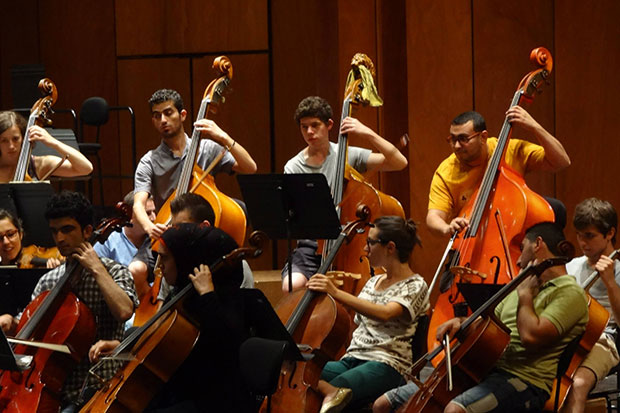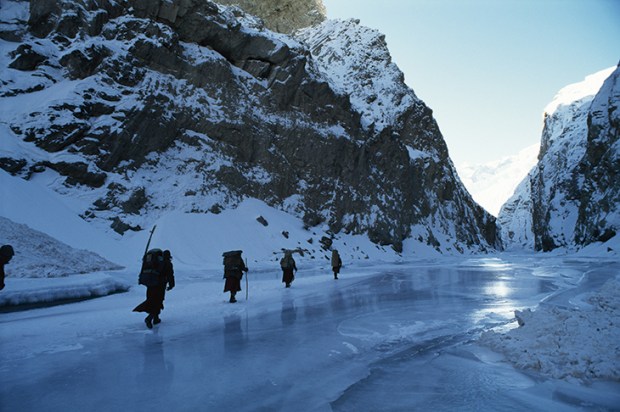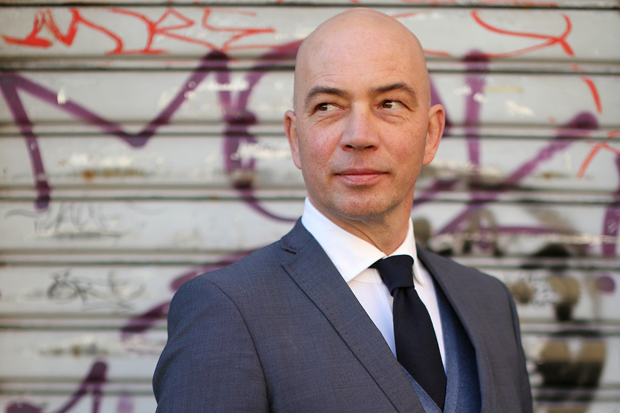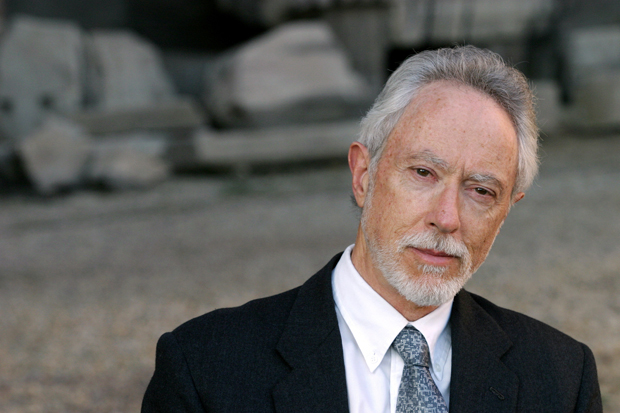Now that even candidates for President of the United States can rise up from the undead dregs of reality television, it comes as no surprise to read that the National Youth Orchestra of Iraq owes its origins to a conclave of television execs. In 2008, Channel 4 and the independent production company Raw TV took upon themselves to campaign for a youth orchestra in Iraq, focusing their programme around the story of Zuhal Sultan, a 17-year-old Iraqi pianist. Later that same year, the Scottish conductor Paul MacAlindin was savouring a fish-and-chip supper in his favourite Edinburgh pub when his eye caught a headline in the Glasgow Herald about the same project — ‘Search for UK maestro to help create an orchestra in Iraq’ — and he thought: ‘I know how to do this.’
What follows, roilling off the pages with the Noakesian enthusiasm of a
Blue Peter presenter, is one of the most unlikely, and genuinely heroic, stories you’re ever likely to read, involving Haydn’s Symphony No. 99 and instruments that fail to stay in tune as temperatures push the mercury. Orchestras are loose coalitions of 100-odd people and are, by nature, prone to rancorous internal politicking. But add to the equation that Iraq had little existing classical music infrastructure, and that an Iraqi youth orchestra would necessarily need to draw on both the Arab and Kurdish population and, as MacAlindin explains, the whole scheme bordered on the implausible.
Revealing intricacies of everyday detail that might make even Karl Ove Knausgaard blush, MacAlindin reproduces emails and verbatim conversations with a revolving cast of British and Iraqi officials from whom he needs guidance — and hard cash, lots of it. A gentle line in self-deprecating humour emerges as our resourceful maestro infiltrates various business delegations and conferences, cheerfully waving copies of his promotional DVD in the general direction of corporate suits. Lord Archer —looking ‘old and worn’ — puts in a cameo appearance at the annual dinner of the British Iraqi Friendship Society in Kensington; Nigel Lawson waddles by at an event in Westminster with ‘unconvincing waves of henna hair to grab a glass of wine’.
But with the batons finally on the ground in Iraq, the comedy abruptly stops. MacAlindin must now face up to the alarming reality that those young Iraqi musicians who auditioned online by video bring problems that simply don’t apply in the West. Deficiencies in rudimentary musicianship — ungainly tuning, failing to count in time, a flabby sense of ensemble — can be fixed, albeit gradually, by MacAlindin and his crack team of instrumental tutors. But psychological scars caused by the Saddam regime and the grim reality of living through war and its chaotic aftermath need cotton-glove handling.
At times the prose is overcooked. Talk of ‘rebuilding Iraq’s decimated culture one note at a time’ and ‘bringing the whole of Iraq together’ read like needless hyper-bole when such a rich story is already there for the telling. Tensions between Arab and Kurdish musicians inevitably bubble over. Thinking through the differences between the Arabic and Kurdish music he programmes alongside Beethoven, Haydn and Mendelssohn, a friend of MacAlindin’s speculates that while Kurds remain in mourning for the genocide of their people, Arabs are still in the midst of experiencing terrorism. Ranya, the orchestra’s Arab French-horn player, begins from a position of considering her Kurdish colleagues ‘plain stupid’. But by the end of the two-week course she has been completely won over. ‘The truth remained inescapable,’ MacAlindin concludes, ‘that without competent players from the whole of Iraq, this youth orchestra could not exist.’
MacAlindin calls himself ‘Music Director of the National Youth Orchestra of Iraq’ in the book but, googling his name, I notice he now refers to himself as its ‘former music director’. Following three summer courses in Iraq and visits to Germany and the UK, a keenly anticipated tour of the US floundered as Isil took hold of Iraq, making any practical arrangements impossible.
The book ends with a justifiably proud account of the orchestra’s achievements, with merit badges all round to those alumni who now work as musicians outside Iraq — but also with a doleful lament for the perilous state of the country. The orchestra had taken over MacAlindin’s life, and in that sense he was happy to step aside. Will a reborn orchestra ever be achievable in the future? Possibly, although all concerned will need to remain ferociously upbeat.
The post Playing for high stakes appeared first on The Spectator.
Got something to add? Join the discussion and comment below.
Get 10 issues for just $10
Subscribe to The Spectator Australia today for the next 10 magazine issues, plus full online access, for just $10.
You might disagree with half of it, but you’ll enjoy reading all of it. Try your first month for free, then just $2 a week for the remainder of your first year.














Comments
Don't miss out
Join the conversation with other Spectator Australia readers. Subscribe to leave a comment.
SUBSCRIBEAlready a subscriber? Log in